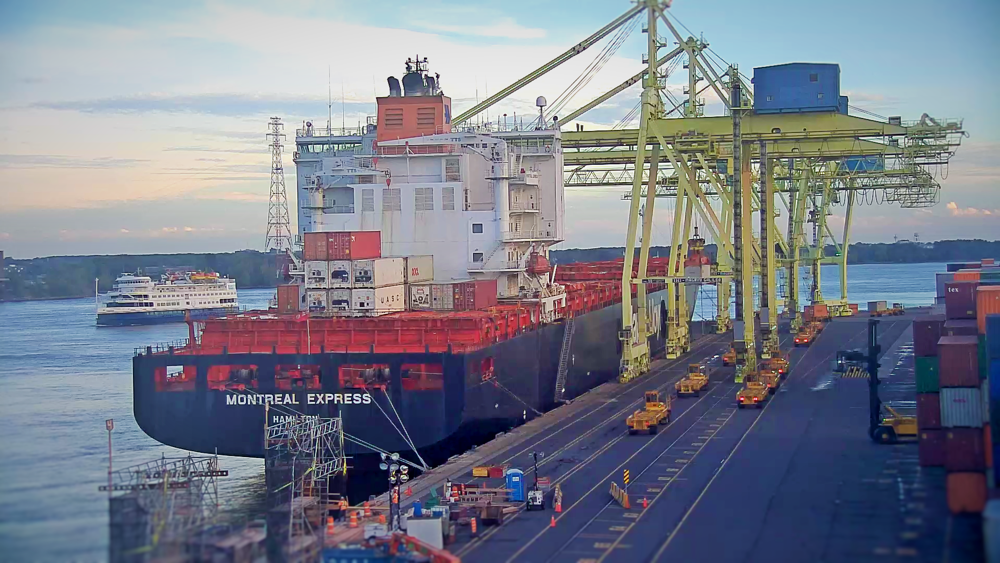According to a report in La Presse newspaper today, the Trudeau government intends to intervene rapidly if the Port of Montreal dockers launch a strike after overwhelmingly rejecting on Sunday the latest offer by the Maritime Employers Association. And Quebec Premier Francois Legault also backs potential quick intervention by Ottawa.
Legislation to force striking dockers back to work is on the drawing boards in the office of federal Labour Minister Filomena Tassi, La Presse said.
The prolonged waterfront conflict at Canada’s second largest port was reportedly raised during discussions between Mr. Trudeau and Mr. Legault last week.
But after the 1,125 dockers rejected the MEA offer to renew a collective agreement which expired on December 31, 2018, CUPE 375 leader Michel Murray invited the port employers to renew negotiations. The MEA expressed readiness to resume talks dominated by major differences on working schedules and striking a balance between work and family life.
The vote last Sunday coincided with the last day of a seven-month armistice between the two parties that, in effect, led the Ottawa authorities to leave the door open to the collective bargaining process rather than intervene with back-to-work legislation.
On Monday, some 20 industry associations, in a statement released by the Canadian Chamber of Commerce expressed disappointment over the vote result and urged Ottawa to avoid any interruption of operations at the Port of Montreal.
Meanwhile, in the growing uncertainty, some shippers recently began diverting cargo to such east coast ports as Halifax.
In this context, global carrier Hapag-Lloyd early today warned customers that it may start diverting vessels away from Montreal if the waterfront situation worsens.
In an email, the company said: “With the risk of potential industrial action at the Port of Montreal, we expect that terminal performance in the port will be severely impacted….As the situation develops, it may prove necessary to divert vessels…”
In addition, Hapag-Lloyd notified shippers of the additional charges in several hundreds of dollars for moving containers by rail to or from the alternate ports of call, Saint John, New Brunswick, or Halifax, Nova Scotia in the event of a diversion. (Photo MPA)





